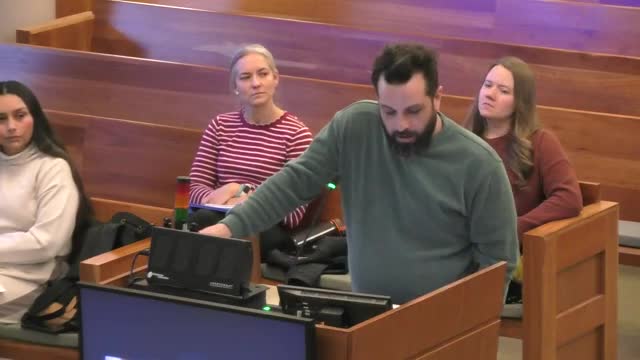Neighbors tell Englewood council Movement 5280 operations are hurting nearby quality of life; council asks for data and enforcement review
Get AI-powered insights, summaries, and transcripts
Subscribe
Summary
Two nearby residents told council the nonprofit Movement 5280’s daytime services and winter overnight sheltering have produced drug use, loitering and public‑safety problems around a residential block. Council asked staff for police call data and to review Good Neighbor Agreement enforcement.
Two residents living near Movement 5280 told the Englewood City Council on Jan. 21 that the nonprofit’s services are producing quality‑of‑life and safety problems for adjacent neighbors, and they urged the council to require stronger enforcement of the organization’s Good Neighbor Agreement or consider relocating the overnight sheltering.
"This has led to a loss of faith in the city's current approach," said Allison Badan, who identified herself as a neighbor and member of the Good Neighbor Committee. Badan told council she had seen what she described as in‑public drug use, loitering, tent camping, and two break‑ins in four months and said promised outdoor security cameras were not installed. "Many surrounding homes in the area have basic outdoor, security systems. Why should a business serving a vulnerable population not be held to the same standard?" she asked.
Kristen Vitale, another nearby resident, said the organization began offering overnight sheltering in October and that neighbors had not been notified before the change. She cited what she said were increases in local drug‑offense counts: "2022 was 88. 2024 is 233," she said, and asked the council to investigate whether the rise correlates to the site’s operations.
Council response and follow‑up requests: Councilmembers expressed concern for neighbors while also acknowledging Movement 5280's role providing shelter during severe weather. Member Russell requested the police department provide the number of crimes and police calls associated with the Movement 5280 location for the last several years. Member Ward asked for the originating reporting‑party (RP) information on those calls to distinguish calls initiated by staff or volunteers from calls by neighbors. Member Dunnecamp asked staff for the Good Neighbor Agreement’s enforcement provisions and the remedies available if the agreement is violated. Council did not direct a relocation but ordered staff follow‑up on the data and agreement enforcement.
Why it matters: Movement 5280 is a nonprofit operating in a residential area; neighbors and the nonprofit have conflicting priorities — community safety and neighborhood livability on one side and shelter and services to people experiencing homelessness on the other. The council’s requests for police data and a review of enforcement mechanisms will form the factual basis for any regulatory or contractual changes the city might pursue.
Ending: City staff took multiple council requests for records and enforcement language; council members said they would review the facts before considering policy or contract changes.
